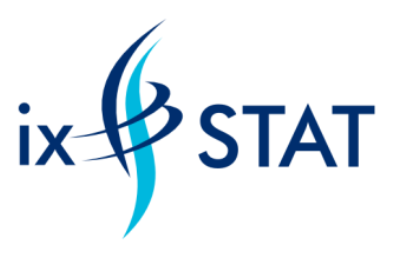
Course Description
Welcome to the fascinating world of statistical analysis in economics! This comprehensive course is designed for aspiring economists, data enthusiasts, and anyone keen on unraveling the mysteries of economic data through powerful statistical tools. Whether you’re a number-crunching wizard or just starting your journey into the realm of quantitative analysis, this course has something for everyone.
Choose Your Weapon: R or Gretl We understand that preferences in statistical software can be as diverse as economic theories themselves. That’s why we offer two flavors of this course: one using R and another using Gretl. Pick your poison (or should we say, your elixir of enlightenment?) and dive into the world of economic statistics.
Prerequisites: A Dash of R/Gretl Knowledge While we don’t expect you to be the next R or Gretl guru, a basic understanding of your chosen software will help you hit the ground running. Don’t worry if you’re feeling a bit rusty – we’ve got you covered with a refresher introduction to get you up to speed faster than you can say “econometrics.”
Course Content:
- R/Gretl 101:
- Dipping Your Toes in the Data Pool
- Navigate the R/Gretl interface like a pro
- Master the art of data importation (because data doesn’t magically appear, unfortunately)
- Perform data manipulation tricks that would make a magician jealous
- Create eye-catching graphics that will make your colleagues go “Wow!”
- Visualizing Data:
- Making Numbers Pretty
- Transform dull datasets into visual masterpieces
- Explore various chart types and when to use them (spoiler: pie charts aren’t always the answer)
- Learn the secrets of effective data presentation (no more death by PowerPoint!)
- Regression Models: Finding Relationships in a Sea of Numbers
- Dive deep into linear regression, multiple regression, and logistic regression
- Understand the assumptions behind these models (and when it’s okay to bend the rules a little)
- Interpret results like a seasoned economist (impress your friends at dinner parties!)
- Non-parametric Methods: When Normal Isn’t Normal
- Explore techniques for when your data refuses to play by the rules
- Master the art of distribution-free statistics
- Impress your peers with your knowledge of Mann-Whitney U tests and Kruskal-Wallis tests
- Time Series Analysis: Predicting the Future (Sort of)
- Unravel the mysteries of ARIMA, ARMA, and GARCH models
- Identify trends, seasonality, and cycles in economic data
- Learn to speak the language of time series (ACF, PACF, and other fun acronyms)
- Forecasting: Crystal Ball Not Included
- Develop models to predict economic trends and variables
- Understand the limitations of forecasting (sorry, we can’t predict lottery numbers)
- Learn to communicate forecast uncertainty to stakeholders
- Monte Carlo Simulations: Playing Economic God
- Create virtual economic worlds and watch them unfold
- Use simulations to test theories and policies
- Understand the power (and limitations) of randomness in economic modeling
Throughout the course, you’ll work with real-world economic data, tackling practical problems that will make you feel like a true economic detective. By the end, you’ll be armed with a powerful set of statistical tools to analyze economic phenomena, impress your colleagues, and maybe even predict the next financial crisis (results not guaranteed).
Remember, in the world of economic statistics, correlation doesn’t imply causation, but it does waggle its eyebrows suggestively and gesture furtively while mouthing ‘look over there’. By the end of this course, you’ll be so good at spotting spurious correlations, you’ll start questioning the relationship between your coffee intake and the global GDP.
So, buckle up, brave data explorer! Whether you choose R or Gretl as your trusty sidekick, you’re in for a wild ride through the land of economic statistics. Who knows? By the end of this course, you might even start dreaming in p-values and confidence intervals. Don’t say we didn’t warn you!
(Disclaimer: This course does not guarantee job offers from central banks, the ability to predict stock market crashes, or immunity from boring economic discussions at family gatherings. Use your newfound powers responsibly!)
